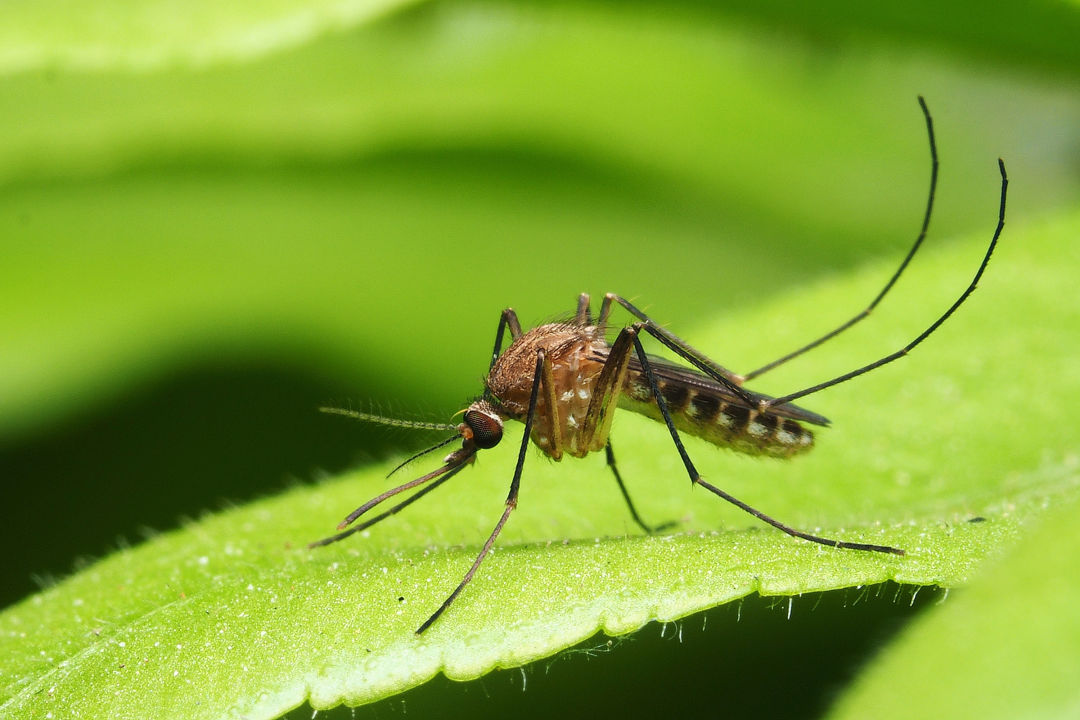Is Sarasota's Mosquito Population Growing?

Image: SHUTTERSTOCK
An invasive mosquito species that can potentially carry yellow fever, the Aedes scapularis, was discovered recently in Miami-Dade and Broward counties. Found mostly in the Caribbean and Latin America, this species is not in our region yet, but the discovery is leading to concern over whether Florida's mosquito populations, including those in Sarasota, can spread diseases we haven't seen in decades, or ever.
Thirty-four species of mosquitoes are seen every year in Sarasota. The peak season for most runs from May through the end of October. However, Sarasota is witnessing an increased amount of container breeding mosquitoes in March; these are mosquitoes that thrive near manmade standing water sources.
Just a few weeks ago, Manatee and Sarasota County mosquito management services teamed up to eradicate a mysterious outbreak of coastal mosquitoes, Aedes sollicitans, in rural Sarasota County. The mosquitoes were flocking to an inland saltwater source instead of their typical tide pools and cordgrass habitat near the beach.
The mosquito control teams discovered that a farming technique had created a manmade saltwater marsh in the middle of vegetation, attracting adult mosquitoes to come and lay eggs. Farmers had applied a mixture of salt and fertilizer to vegetation and flooded it with water for five days.
"To reduce the outbreak, we flew over the area in a helicopter to spray adulticide, which kills adult mosquitoes," says Sarasota County Mosquito Management Services manager Wade Brennan. "This is usually a last-ditch effort if traps on land are not working."
Larvicide, a bacteria that only kills mosquito larvae, was also applied by Manatee County. Traps of water made with turkey basters were applied on land to trap larvae. This also helped mosquito management services determine the species and estimate the insect's population.
The rapid life cycle of a mosquito makes it difficult to control growing populations. A mosquito's life cycle from egg to adult takes about eight to 10 days. Once the egg is hatched, the larvae grow for five to seven days in water, and then turn into pupae for two to three days, until they are flying adults.
Unfortunately, the Aedes sollicitans are not the only ones rapidly producing in our area right now.
"We sprayed over North Port on the night of Tuesday, March 16, because we are getting calls about an outbreak of the Mansonia species there," says Brennan. "Mansonia are also called 'root breathers,' because they breathe through the root systems of invasive plants like water lettuce and water hyacinth, which sit on the tops of ponds."
Mansonia are aggressive. They tend to stick around water sources and lay their eggs under the leaves of plants. There are only two kinds of Mansonia present in Sarasota, and because the source of water lettuce and hyacinth in North Port is still unidentified, management services will have to spray again for maintenance. Since the initial spray, there has already been a significant reduction, and management services followed up by setting traps the next night.
These mosquitoes will bite, but are there any that will cause disease? According to Brennan, of the 34 species found in Sarasota, about eight have the potential to carry disease, with viruses like Dengue fever, Zika and West Nile being the primary concerns. While it is rare to develop a mosquito-borne illness in Florida because of the state's extensive prevention measures, there is still the possibility of contracting a virus from a bite. Symptoms can range from mild to dangerous, and some bites can cause encephalitis, an illness that causes severe neurological issues.
Sarasota County epidemiologist Michael Drennon says there are no immediate warning signs of disease when you first get a mosquito bite. In fact, Drennon says about 80 percent of people infected with West Nile virus don't ever know they have it. Over time, however, if you begin to feel confusion, fatigue or a severe headache that is persistent, seek medical attention to rule out mosquito-borne illness. Those can all be symptoms of encephalitis, a swelling of the brain.
"Most bites don't result in transmission of infection," says Drennon. "It's not something you immediately see at the bite site." Treatment will involve the reduction of symptoms and an antibiotic only if there is an infection at the bite. Person-to-person transmission is also extremely rare, however some species, like the Aedes scapularis in Miami, feed off of both birds and people. In fact, sentinel chickens are typically infected and used for the detection of West Nile Virus in some counties. The Florida Department of Health uses infected chickens to measure the increased risk potential for humans.
What should you do to prevent mosquito bites? Brennan says repellant works well, but only if it is sprayed evenly over the body. Brennan also suggests wearing loose-fitting clothes, because tight pants and shirts do not work as a protective barrier. Keeping your yard free of standing water sources and removing things like shoes, tires and plastic containers can also help reduce infestations.
To be notified when Sarasota County will spray for mosquitoes, click here and choose the box for "mosquito spraying" when registering. For more assistance, call (941) 861-5000.



